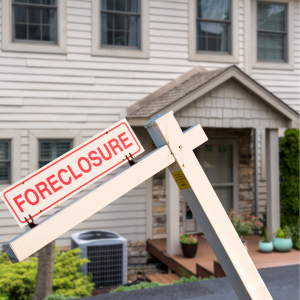
Understanding Homeowners Association (HOA) Liens and Foreclosures
Every Minneapolis homeowner needs to understand the legal ramifications of HOA liens and foreclosures. An HOA places a lien when a homeowner defaults on the quarterly dues or any other responsibilities, sometimes leading to an HOA foreclosure.
Legally, an HOA in Minneapolis, like the rest of Minnesota, can start a foreclosure process if there are outstanding debts and can ultimately take away the property. Understanding the dynamics of these liens is critical, as they may take priority over other liabilities, endangering homeownership stability more severely.
Understanding HOA delinquencies and the consequential processes of foreclosures requires homeowners to appreciate their governing documents and local laws deeply. Active participation enables homeowners to mitigate the risk of losing a property due to unpaid dues or assessments, in which case, they work alongside the association through vigilance.
Can an Hoa Foreclose on a Home in Minnesota?
In Minnesota, homeowners must be acutely aware of the risks associated with Homeowners Association (HOA) foreclosure. While it may seem surprising, an HOA can initiate foreclosure proceedings on a home in Minneapolis if certain conditions are met.
Knowing the law on HOA foreclosures is essential for homeowners to preserve their ownership rights. In Minnesota, an association can place a lien on the homeowner’s property when the homeowner defaults on HOA payments, dues, or assessments.
The HOA reserves the right to pursue foreclosure if the dues, liabilities, and obligations are not paid promptly to recover the outstanding commitments and debts cumulatively. Homeowners must understand that this process is fundamentally akin to mortgage foreclosure and that they can forfeit their homes if not acted on in a reasonable time.
Communicating proactively with your HOA and staying current on payments can help mitigate these risks. In addition, homeowners must appreciate why they should obtain legal counsel regarding Minnesota’s HOA foreclosure laws when faced with an HOA foreclosure.
Such considerations of HOA foreclosure implications in Minneapolis empower homeowners to create effective systems to protect their homes from loss associated with defaulting on payment of fees or special charges levied against the property. K&G Investments can help guide you through this process and explore solutions to avoid foreclosure.
How Hoas Can Enforce Dues and Assessments
Homeowners Associations (HOAs) in Minneapolis have specific powers to enforce dues and assessments, including the drastic measure of foreclosure if homeowners fail to meet their financial obligations. These associations are empowered by their governing documents, such as the Declaration of Covenants, Conditions, and Restrictions (CC&Rs), to collect dues that fund community maintenance and amenities.
If a homeowner ignores these fees, the HOA can recover these losses and take action. Initially, they may charge the homeowner late fees and interest on unpaid balances, adding even more debt.
As a last resort, HOAs can place a lien on a property. This would allow them to have some sort of recourse or guarantee claim against the property. This lien not only encumbers the title but also serves as a legal precursor to foreclosure proceedings.
In Minnesota, HOAs must adhere to specific legal procedures before initiating foreclosure; however, once those procedures are met, they possess the authority to sell the home at auction to recoup unpaid dues and assessments. Homeowners should know that although foreclosure by an HOA is less well-known than mortgage lender foreclosures, it still poses a considerable risk for people living in Minneapolis communities governed by these associations and falling behind on their dues. If you’re facing this situation, you may need to sell your house in Minneapolis and other cities in Minnesota to avoid further legal and financial consequences.
Common Reasons Hoas Files Liens on Properties
Like in other regions of the country, homeowners associations (HOAs) in Minneapolis have the right to place liens on properties for numerous reasons that might result in homeowners losing their homes. Foreclosure usually results from an unpaid assessment or dues that must be paid to access the community features and services tower. To be multi-functional in the correction of narratives using narcotics quotes.
When members default on payments, the HOA must act to protect its monetary interest and can, hence, put a lien on the property. Moreover, HOAs could also place liens because of infringement of community rules and regulations, possibly leading to penalties if not dealt with promptly. Understanding How To Stop Foreclosure is essential in these situations, as it helps homeowners address liens early, protect their property, and take action before the situation escalates.
These violations include problems regarding landscaping and unauthorized construction. Another possible cause is the non-payment of an HOA’s invoice for repairs or maintenance to a property the homeowner has vacated.
If left unattended for long periods, the HOA’s internal procedures for these issues can lead to critical ramifications both financially and legally. Such methods require homeowners in Minneapolis to fully grasp how the functions and obligations of an HOA intertwine with property ownership.
Steps Hoas Take Before Pursuing Foreclosure in Minnesota

In Minnesota, homeowners associations (HOAs) have a structured process to follow before initiating foreclosure proceedings against a homeowner. Initially, the HOA will send out a notice for failure to make payments or assessments, which details the dues, obligations unpaid as of now, and late fees accumulated up to this point.
This constitutes a notification regarding the resident’s payment obligations concerning the association’s financial activities. Without a remedy, no further action will be taken after this second and final reminder, while continuing to send reminders and notices or attempts to settle payment with the defaulting client to avoid the remedy procedure.
If those attempts are unsuccessful, the HOA has the right to place a lien on the property, thereby registering an interest against it. The HOA takes this action because it demonstrates that they are ready to take legal action related to the property, and the lien is the legal tool to do so.
Minnesota law requires that the HOA adhere to certain disclosures and timelines before proceeding with foreclosure. This ensures that homeowners have sufficient opportunity to rectify their situation and are fully informed of potential outcomes. Throughout this process, communication between the homeowner and the HOA is encouraged to explore all possible avenues for resolving outstanding debts without resorting to foreclosure actions.
Legal Rights of Hoas in Minneapolis, Minnesota
In Minneapolis, Minnesota, homeowners associations (HOAs) possess specific legal rights that can significantly impact property owners, particularly concerning foreclosure risks. Under state law, HOAs can enforce covenants and collect assessments or dues from homeowners within their communities.
If a homeowner fails to pay these dues, the HOA may place a lien on the property, which is often the first step in foreclosure. This lien gives the HOA a secured interest in the property and can lead to foreclosure if unresolved.
Minnesota statutes outline that HOAs must follow specific procedures before initiating foreclosure, including providing notice to delinquent homeowners and allowing a redemption period during which owners can pay off outstanding debts. Additionally, due to these procedural safeguards, HOAs typically cannot foreclose as quickly as mortgage lenders, but they still hold substantial power to affect ownership through judicial processes.
Understanding these legal rights is crucial for Minneapolis homeowners who want to navigate potential disputes with their HOA and protect their homes from foreclosure. For guidance tailored to your situation, contact us today.
Impact of Unpaid Dues on Property Ownership Rights
In Minneapolis, homeowners who are part of a Homeowners Association (HOA) must be vigilant about paying their dues on time to avoid serious consequences, including foreclosure. Unpaid HOA dues can significantly impact property ownership rights, as associations have the legal authority to place a lien on a property for delinquent payments.
This lien can eventually lead to foreclosure if the debt remains unpaid, putting the homeowner at risk of losing their home. The process begins when an HOA records a lien against the property due to unpaid assessments, which is legally enforceable and may accrue additional fees and interest over time.
In Minneapolis, state laws empower HOAs to initiate foreclosure proceedings similar to mortgage foreclosures if liens aren’t settled promptly. Homeowners need to understand that even small amounts of unpaid dues can escalate into substantial financial burdens, threatening their equity and investment in the property.
Maintaining clear communication with the HOA and addressing any financial difficulties proactively can help mitigate these risks and protect one’s home from potential foreclosure actions initiated by the association.
Legal Resources for Homeowners Facing HOA Action
Homeowners in Minneapolis facing potential foreclosure due to HOA actions should be aware of the legal resources available to them. Understanding the intricacies of homeowners’ association rules and Minnesota state law is crucial for effectively navigating these situations.
Consulting with a lawyer who specializes in real estate or HOA law can provide invaluable guidance on your rights and obligations, helping you understand the scope of the HOA’s authority and any defenses you might have against foreclosure. Legal aid organizations in Minneapolis also offer support to those who may not afford private counsel, often providing advice or representation at reduced costs or even pro bono in some cases.
Homeowners must act swiftly, as legal timelines can be tight when contesting HOA foreclosure actions. Additionally, researching relevant case law and attending informational workshops or seminars on property rights can empower homeowners with knowledge about their situation.
Engaging with community advocacy groups focused on housing rights may also provide additional support and resources during this challenging time.
Strategies to Prevent Hoa Lien or Foreclosure Actions

To effectively prevent HOA lien or foreclosure actions in Minneapolis, homeowners should prioritize staying informed about their Homeowners Association (HOA) rules and regulations. Understanding the specific covenants, conditions, and restrictions that govern your community is crucial to avoiding violations that could lead to fines or liens.
Timely payment of HOA fees is essential; if financial difficulties arise, proactively communicating with the HOA board may help negotiate a feasible payment plan. Attending HOA meetings regularly can keep you updated on any changes in policies or fees, reducing the risk of unexpected charges.
Additionally, maintaining open lines of communication with neighbors and forming supportive networks can provide insights into common issues with the HOA, potentially offering early warnings about possible risks. Seeking legal advice from an attorney knowledgeable in Minnesota real estate law can be beneficial if you anticipate any disputes with your HOA that might escalate toward foreclosure proceedings.
Establishing a budget that accounts for regular and special assessment fees will ensure financial preparedness against sudden expenses imposed by the association.
Negotiating Payment Plans with Your Hoa
- Initiate Communication Early
– Contact your HOA when you realize you’re falling behind on dues. Early outreach shows good faith and a willingness to resolve the issue. - Demonstrate Willingness to Cooperate
– Approach the HOA with a positive attitude and a clear intention to work out a solution, which can improve your chances of reaching an agreement. - Propose a Realistic Payment Plan
– Present a reasonable repayment plan based on your actual budget. Be honest about your financial situation to ensure the plan is manageable. - Clarify All Terms of the Agreement
– Before signing, ensure you fully understand any interest, late fees, or conditions tied to the payment plan. Clear terms help avoid future misunderstandings. - Follow Through Consistently
– Stick to the agreed payment schedule to rebuild trust and avoid further penalties or legal action. - Preserve Community Relationships
– Taking proactive steps can help avoid foreclosure, maintain good standing with your HOA, and support overall property values in your neighborhood.
Homeowner Protections Against HOA Foreclosure in Minneapolis
Homeowners in Minneapolis facing potential foreclosure from a Homeowners Association (HOA) can take comfort in knowing there are protections to safeguard their homes. Minnesota law provides specific procedures that an HOA must follow before initiating a foreclosure process, ensuring homeowners receive ample notice and opportunities to address any dues or assessments in arrears.
In Minneapolis, state statutes require that HOAs provide written notice of delinquency and the intent to foreclose, allowing homeowners to settle their debts or dispute the charges. Additionally, HOAs are often required to offer payment plans or negotiate terms with homeowners who demonstrate financial hardship.
Legal provisions also mandate mediation as an option for resolving disputes between the homeowner and the HOA, potentially preventing foreclosure actions from proceeding. Understanding these protective measures allows Minneapolis residents to navigate HOA-related challenges better and protect their property rights effectively.
Navigating the Minnesota Court System for HOA Matters
Navigating the Minnesota court system for HOA matters requires a comprehensive understanding of state laws and homeowners association regulations. Minneapolis homeowners facing potential foreclosure due to HOA disputes must first familiarize themselves with the Minnesota Common Interest Ownership Act, which governs the operation of HOAs within the state.
Legal proceedings typically begin with reviewing the HOA’s governing documents, including covenants, conditions, and restrictions (CC&Rs), to ensure that all actions comply with these documents and Minnesota statutes. Homeowners must respond promptly to legal notices from their HOA or its attorneys to avoid default judgments that could expedite foreclosure proceedings.
Engaging an experienced attorney who specializes in real estate or HOA law can provide valuable guidance through pre-litigation negotiations and court hearings. Understanding procedural requirements, such as filing deadlines and mediation options, can also significantly impact the outcome of disputes.
Homeowners should be prepared to present evidence supporting their case, whether challenging unauthorized fines or disputing assessments claimed by the HOA, as courts will require substantive documentation during litigation.
The Role of State Laws in Hoa Property Seizure

State laws play a crucial role in determining the extent to which homeowners associations (HOAs) in Minneapolis can enforce foreclosure actions. In Minnesota, state statutes govern the procedures and limitations surrounding an HOA’s ability to initiate property seizure due to unpaid dues or assessments.
These laws establish the legal framework HOAs must follow, ensuring homeowners are afforded certain protections and rights throughout the foreclosure process. For instance, Minnesota law mandates that HOAs must provide clear notice of delinquency and offer opportunities for homeowners to resolve outstanding debts before proceeding with foreclosure.
Additionally, state regulations require adherence to specific timelines and procedural steps to prevent arbitrary or unjust property seizures. Understanding these legal requirements is essential for homeowners in Minneapolis, as they dictate how far an HOA can go in reclaiming a property due to nonpayment issues.
Furthermore, state laws may also impose restrictions on the types of properties subject to HOA foreclosure, potentially offering additional layers of protection for homeowners against losing their homes.
The Process of Resolving HOA Disputes in Minnesota
Steps to follow to resolve HOA disputes in Minneapolis, Minnesota:
- Review Governing Documents
– Examine your HOA’s governing documents, such as the Covenants, Conditions, and Restrictions (CC&Rs). These outline the rules and procedures for handling disputes. - Communicate with the HOA Board
– Homeowners in Minneapolis should try to resolve issues by speaking directly with the HOA board to clarify any misunderstandings or concerns. - Consider Mediation
– Mediation is recommended if direct communication doesn’t resolve the dispute. A neutral third party helps both sides negotiate a solution. - Pursue Arbitration or Legal Action
– When mediation fails, arbitration or court action may be necessary. Homeowners should understand their legal rights and seek guidance from an attorney familiar with Minnesota HOA laws to address risks such as foreclosure and ensure full legal compliance.
Exploring Alternatives to Foreclosure with Your HOA
Homeowners in Minneapolis facing the threat of HOA foreclosure have several alternatives to explore that can help prevent the loss of their property. One option is communicating openly with the homeowners association (HOA) to negotiate a payment plan or discuss possible financial assistance programs.
Homeowners must understand their rights and responsibilities under Minnesota state law and the specific rules outlined in their HOA covenants, conditions, and restrictions (CC&Rs). Mediation can also be beneficial, providing a neutral platform for both parties to reach an agreement.
Homeowners might consider refinancing options that can consolidate debts or lower monthly payments, making it easier to manage financial obligations. Additionally, seeking guidance from legal professionals specializing in real estate or foreclosure issues may offer valuable insights into other viable solutions tailored to individual circumstances. In some cases, accepting an offer from investor home buyers in St. Paul and surrounding cities in Minnesota can provide a fast, practical way to resolve financial challenges and avoid foreclosure.
By proactively exploring these avenues, homeowners can work towards resolving disputes with their HOA and potentially avoid foreclosure.
Case Studies: Successful Resolutions to Hoa Conflicts
In Minneapolis, homeowners facing the risk of HOA foreclosure have often found successful resolutions through various case studies highlighting effective conflict management strategies. One notable example involves a homeowner who resolved a potential foreclosure by actively participating in mediation sessions with the homeowners association (HOA).
Through open communication and negotiation, the homeowner and the HOA agreed on overdue assessments, allowing for a manageable payment plan that prevented foreclosure. Another case demonstrates how legal intervention can play a crucial role; a resident sought the help of a knowledgeable attorney well-versed in HOA laws to challenge unjust fines and penalties imposed by an overzealous board.
By leveraging state-specific regulations, they reduced their financial burden and avoided losing their home. Additionally, some homeowners have found success by rallying community support to address widespread concerns within the association, leading to policy changes that benefit all members while reducing foreclosure risks.
These case studies emphasize that understanding legal rights, engaging with community resources, and fostering constructive dialogue are pivotal in resolving conflicts with HOAs in Minneapolis.
Who Regulates HOAs in Minnesota?
Homeowners Associations (HOAs) in Minnesota are primarily regulated under state law, with specific statutes governing their formation, operation, and powers. The Minnesota Common Interest Ownership Act (MCIOA) is the principal legislation that outlines the rules and regulations for HOAs, including those in Minneapolis.
This act provides a framework for managing common interest communities such as condominiums and planned unit developments. Under MCIOA, HOAs must adhere to specific governance standards, financial transparency practices, and procedural requirements to protect homeowners’ rights.
Additionally, while no state agency oversees HOAs in Minnesota, disputes or legal issues may be addressed through the state’s judicial system or by consulting with legal professionals specializing in HOA law. Understanding these regulatory structures is crucial for homeowners in Minneapolis to mitigate foreclosure risks associated with non-compliance or disputes within their association.
What Is an Example of Abuse of Power in Hoa?
An example of abuse of power in a Homeowners Association (HOA) can occur when the HOA board in Minneapolis exercises its authority in an unjust or unethical manner, particularly regarding foreclosure risks. Sometimes, an HOA may unfairly target homeowners by imposing excessive fines for minor infractions, such as leaving trash bins out too long or failing to maintain landscaping to specific standards.
These fines can accumulate rapidly, leading to significant financial burdens on the homeowner. If the homeowner cannot pay these fines, the HOA might initiate foreclosure proceedings, leveraging its power disproportionately.
This potential abuse of power raises concerns about HOA governance and highlights the importance of understanding your rights and responsibilities as a homeowner within an HOA community in Minneapolis. Additionally, it underscores the necessity for transparency and accountability within HOAs to prevent scenarios in which homeowners may lose their homes due to overreaching actions by their association’s board.
Can You Get Your House Removed From the Hoa?
Homeowners in Minneapolis often wonder if they can remove their house from a Homeowners Association (HOA) to avoid foreclosure risks. While detaching your property from an HOA might seem appealing, especially if you’re concerned about potential HOA foreclosure, it’s essential to understand that this process is typically not feasible.
HOAs are established through legal agreements and covenants that bind all properties within a community. These agreements are recorded in public records when the community is developed, making removing an individual’s property legally complex.
Homeowners should instead focus on understanding their HOA’s rules and regulations, participating in meetings, and ensuring timely payment of dues to mitigate any foreclosure risk. If financial difficulties arise, it’s advisable to communicate proactively with the HOA board to explore possible solutions or payment plans rather than attempting to separate from the association.
Need to sell your home fast? K&G Investments makes it easy. Skip the repairs and hassle—we offer fair cash deals and handle everything. Call us at (612) 400-8070 for a no-obligation offer. Let’s get started today!
| FORECLOSED UPON | FORECLOSING | HOMEOWNER’S ASSOCIATION | HOMEOWNERS ASSOCIATIONS (HOA) | HOMEOWNER ASSOCIATION (HOA) | LIENHOLDER |
| FIRST LIEN | INSURANCE | INSURANCE CLAIMS | INSURANCE CARRIERS | INSURANCE COMPANY | INSURANCE AGENCY |
| LEGAL SERVICES | TOWNHOME | FIRST MORTGAGE | CREDITORS | SIMPLE INTEREST | STATUTORY |
| SHERIFF’S SALE | PUBLIC AUCTION | SHERIFF SALES | MORTGAGOR | PRIVATE LENDERS | BOARD OF DIRECTORS |
| MEDIATOR | NON-PROFIT CORPORATION | NONPROFIT CORPORATIONS | NONPROFIT | MONEY | |
| DEFAULTED | LOAN DEFAULT | ATTORNEY FEES | TAX | TAXES | PRIVACY |
| LOAN MODIFICATION | MORTGAGE MODIFICATION | FDCPA | FAIR DEBT COLLECTION PRACTICES ACT | COLLECTION AGENCY | DEBT COLLECTION |
| SHERIFF | DEED-IN-LIEU OF FORECLOSURE | A HOA IN MINNESOTA | CORPORATIONS | BANKRUPTCY | BANK |
| ARTICLES OF INCORPORATION | TERMS OF USE | REPAYMENT PLANS | NONPROFIT CORPORATION | MARKETING | INVESTMENTS |
| INCORPORATION | FAIR HOUSING ACT | FAIR HOUSING | FORBEARANCE | FINANCIAL ADVISOR | FINANCIAL ADVISERS |
| FINANCES | EVICTION | HOMEOWNERS ASSOCIATION HOA | UNDER MINNESOTA LAW | HOA IN MINNESOTA | HOMEOWNERS ASSOCIATIONS HOAS |
| A HOMEOWNERS ASSOCIATION HOA | AN HOA CAN FORECLOSE | AN HOA IN MINNESOTA | MINNESOTA HOMEOWNERS ASSOCIATIONS HOAS |
Helpful Minneapolis Blogs Articles
- Selling A House As-is In Minneapolis, Minnesota
- Documents For Selling Your Home In Minneapolis, Minnesota
- Homeowners Insurance When Selling a House in Minneapolis, MN
- Executor Authority in Selling Property In Minneapolis, MN
- Sell A Tenant-occupied Property In Minneapolis, MN
- Selling a House with Title Problems in Minneapolis, MN
- Sell Your House Below Market Value In Minneapolis, MN
- Selling Your Fixer-upper Home In Minneapolis, MN
- HOA Foreclosure Risks In Minneapolis, Minnesota
- Selling An Inherited House In Minneapolis, Minnesota
- Minneapolis, MN, Regulations For Leaving A House Vacant
- Paperwork For Selling a House By Owner In Minneapolis, MN

